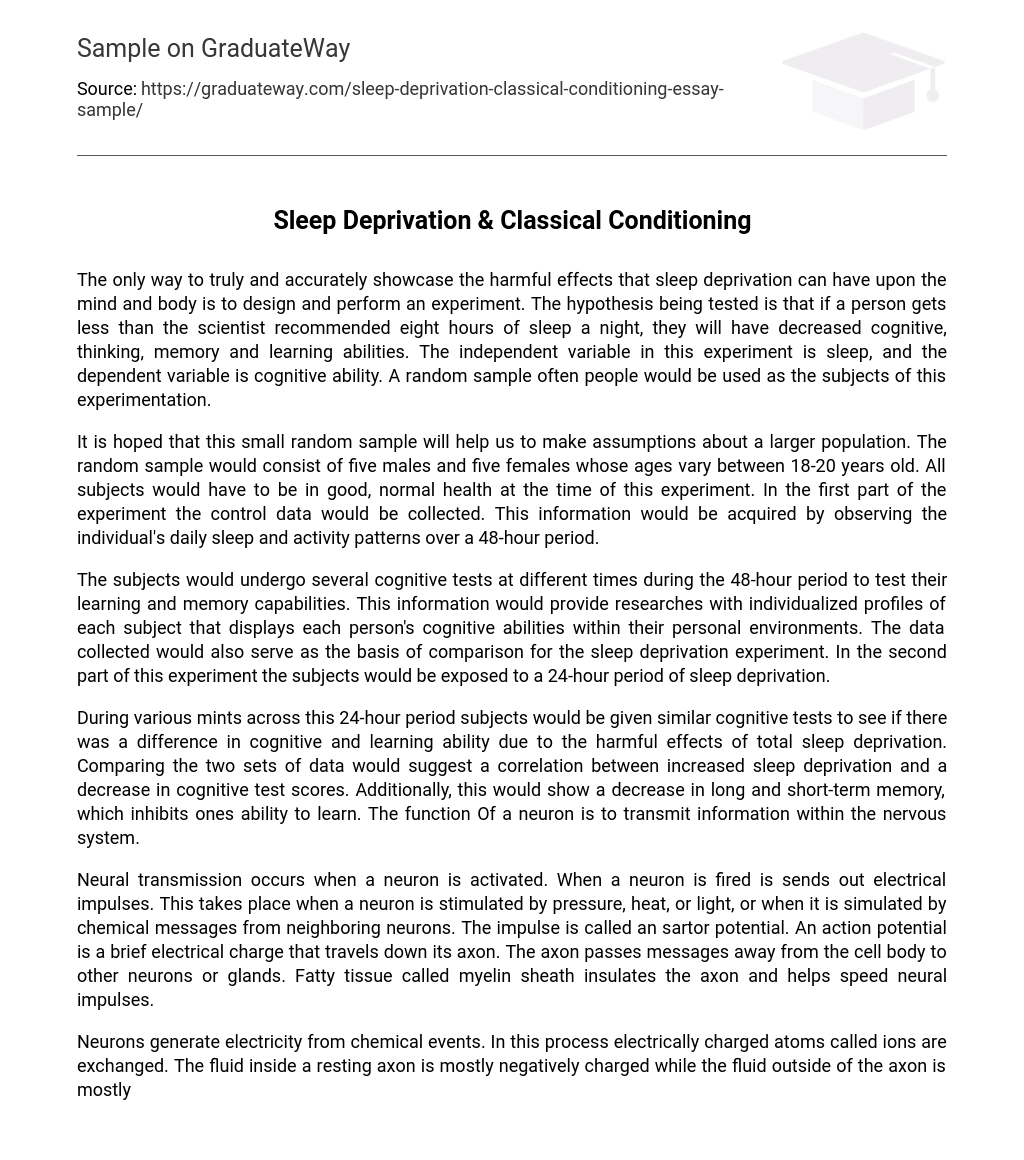An experiment is necessary to accurately demonstrate the harmful effects of sleep deprivation on both the mind and body. The primary objective of this experiment is to investigate the hypothesis that inadequate sleep, specifically less than the recommended eight hours per night, results in a decline in cognitive functions like thinking, memory, and learning abilities. In this experiment, sleep will be treated as the independent variable while cognitive ability will function as the dependent variable. A random selection of individuals will be recruited as participants for this study.
The goal is to use a small random sample to make inferences about a larger population. The sample consists of five males and five females aged 18-20 years old. It is crucial that all participants maintain good, regular health during the experiment. The first phase involves collecting control data by observing the sleep and activity patterns of the subjects for 48 hours.
During a 48-hour period, subjects would undergo cognitive tests at various times to assess their learning and memory capabilities. This data would enable researchers to develop personalized profiles for each subject, demonstrating their cognitive abilities in specific environments. Furthermore, the gathered information would establish a baseline for the sleep deprivation experiment. In the second phase of the study, subjects would experience a 24-hour period without sleep.
The purpose of assessing individuals at different times throughout a 24-hour period was to evaluate the impact of not getting enough sleep on their cognitive and learning abilities. The results of the tests showed that severe lack of sleep is linked to lower scores in cognitive assessments, indicating a decline in both short-term and long-term memory, which impairs the ability to learn. Neurons play a critical role in transmitting information within the nervous system.
Neural transmission occurs when a neuron is stimulated, resulting in the release of electrical impulses. This stimulation can be caused by pressure, heat, or light, as well as chemical signals from neighboring neurons. The released impulses, referred to as sartor potentials, are short-lived electrical charges that travel along the axon. The axon’s function is to convey messages from the cell body to other neurons or glands. To facilitate quicker neural impulses, the axon is protected by a fatty substance known as myelin sheath.
Neurons produce electrical energy through chemical reactions, where electrically charged atoms known as ions are exchanged. The inner fluid of a resting axon holds a mainly negative charge, while the outer fluid of the axon holds a mainly positive charge. This condition is referred to as resting potential. When the neuron becomes active, the initial segment of the axon opens its channels, permitting an influx of positive ions, resulting in depolarization. Depolarization then triggers the opening of the next axon channel, and so on. During the resting phase, the positive ions are actively transported out of the axon, preparing it for subsequent firing.





